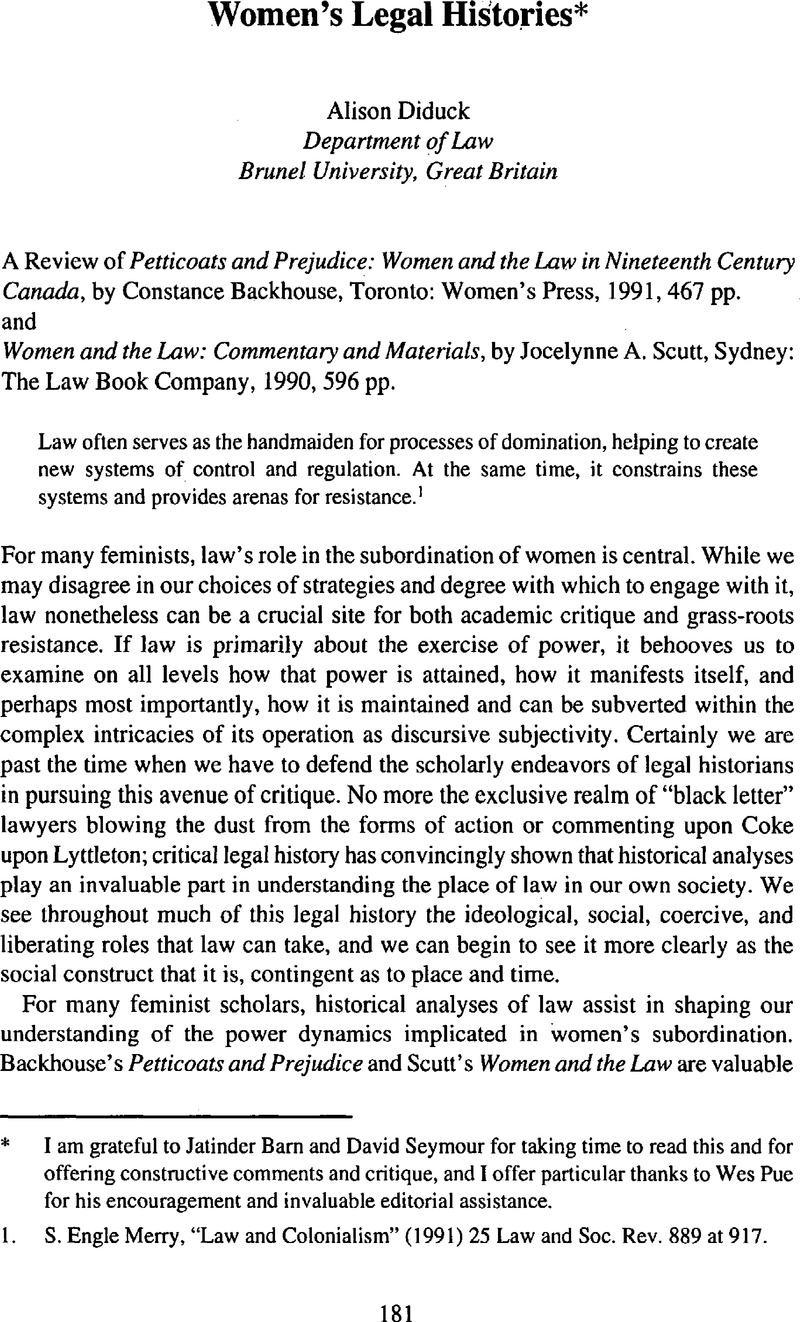No CrossRef data available.
Published online by Cambridge University Press: 18 July 2014

1. Merry, S. Engle, “Law and Colonialism” (1991) 25 Law and Soc. Rev. 889 at 917CrossRefGoogle Scholar.
2. Supra note 1 at 890–91.
3. Ibid. at 891.
4. Ibid. at 895.
5. Ibid.
6. hooks, b., Talking Back: Thinking Feminist, Thinking Black (Boston: South End Press, 1989) at 22Google Scholar.
7. Smart, C., Feminism and the Power of Law (London: Routledge, 1989) at 164CrossRefGoogle Scholar.
8. Fineman, M. A. and Thomadsen, N. S., eds., At the Boundaries of Law: Feminism and Legal Theory (New York: Routledge, 1991) at 1Google Scholar.
9. b. hooks, supra note 6.
10. See, e.g., Williams, P., The Alchemy of Race and Rights (Cambridge, MA: Harvard University Press, 1991)Google Scholar.
11. K. Lahey, “Reasonable Women and the Law” in Fineman and Thomadsen, supra note 8.
12. Pearlman, L., “Through Jewish Lesbian Eyes: Rethinking Clara Brett Martin” (1992) 5 C.J.W.L. 317Google Scholar.
13. Backhouse, C., “Response to Cossman, Kline and Pearlman” (1992) 5 C.J.W.L. 351 at 354Google Scholar.
14. See, e.g., Kline and Cossman's critique of naming Clara Brett Martin as a heroine, in spite of her known anti-Semitism. Cossman, B. and Kline, M., “‘And If Not Now, When?’: Feminism and Anti Semitism Beyond Clara Brett Martin” (1992) 5 C.J.W.L. 298Google Scholar; and Backhouse, , “Clara Brett Martin: Canadian Heroine or Not?” (1992) 5 C.J.W.L. 263Google Scholar.
15. See, e.g., Fudge, J., “Evaluating Rights Litigation as a Form of Transformative Feminist Politics” (1992) 7:1C.J.L.S. 153CrossRefGoogle Scholar.
16. I am using the phrase “women's law” in the sense that Scandinavian feminists have developed it, as the study of the legal situation of women, which accepts that women as legal subjects experience the impact of legal rules differently from men. See Dahl, T. Stang, Women's Law: An Introduction to Feminist Jurisprudence, trans. Craig, R. L. (Oxford: Norwegian University Press, 1987)Google Scholar.